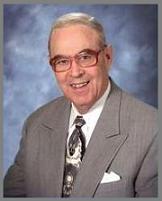Conjectures and Agreements (Postulates and Propositions)
John propose five logically sequential postulates (hypothesize) that introduce and undergird his main propositions: These five ideas also establish the true biblical basis for the doctrine of inerrancy:
- GOD IS: (Gen. 1:1, Ps 14, Heb 11:6)
- GOD IS TRUE: (Ex 34:6, Num 23:19, Deut 32:4 Psa 25:10, 31:6, Isa 65:16, Jer 10:8: John 14:6, 17:3, Titus 1:2, Heb 6:18 and I John 5:20-21
- GOD SPEAKS IN HARMONY WITH HIS NATURE : (Num 23:19, I Sam 15:29; Rom 3:4, 2 Tim 2:13, Titus 1:2 and Heb 6:18)
- GOD SPEAKS ONLY TRUTH: (Ps 31:5, 119:43, 142, 151, 160, Prov 30:5, Isa 65:16 John 17:17 and James 1:18.
- GOD SPOKE HIS TRUE WORD AS CONSISTENT WITH HIS TRUE NATURE TO BE COMMUNICATED TO PEOPLE (self-evident truth which is illustrated at 2 Tim. 3:16-17 and Heb 1:1
So what are we saying here:
The whole counsel of God means from Genesis to Revelation. Its God’s counsel that is to be taught, NOT MAN’S, which is generally what we do.
We are to look at the Bible as God’s word and we need then to look at every part of the bible as a whole.
2 God gave His true Word to be communicated exactly as He gave it. It is to be dispensed precisely as it was delivered without the message being altered.
Now this will take some thinking on our part. What does God want us to know about Him and His creation and His Plan for mankind and Himself? Its found in the Word.
Only the exegetical process which yields expository proclamation will accomplish suppositions 1 and 2
God is. And God is truth. What God says is truth. It’s the only 100% truth there is. God only speaks truth. Every word that God speaks in the Bible is Truth because God is., and God is Truth. God could not speak any less then in changeless nature. Thus what the Word says we can be sure its true because God said it. There fore it’s the purpose of the preacher to preach the Word of God as God has had it written down.
Now note much of the preaching you hear (in many of the churches) is not in the Bible. Too often we think that preaching from Ephesians 1:1 to 3 let’s say,+ is not enough for our people to hear if we expect them to be the kind of Christians they could be. He add to the text what we believe is needed to add to their edification.
Where John MacArthur helped me Charity was in this point. Preaching or I like to use the word teaching. Pastor/Teacher I would address my self as. Preaching to my fellow pastors is preaching and teaching is what you do in Sunday School. What they would say about my preaching style is its teaching and not preaching. One preacher said to me, "Bro Charles that was a good lesson you taught to day." He didn’t consider it preaching.
What I learned was to let the Scripture to the teaching for me. So I begin with Matthew on Sunday Morning and Romans on Sunday Evening. What I tried to do was to open the book to Matthew chapter one and see if I could communicate to the people what God was wanting them to hear from the verses.
I didn’t see dancing in Matthew, I didn’t see going to movies was wrong in chapter one. I didn’t see a whole lot of things in chapter one that I had hoped was in there. How was I going to get the people to go soul winning, and come back on Sunday Evening and here me preach from Romans.?
So could I teach the text and then add a little at the end of the sermons? Could I say, "Now here is what I believe God would want us to know about this text as an application? " But it was not in the text at all. I was asking the people to hear something I said rather than what the text said today.
How often have we heard sermons that spoke of things that was not in the text the preacher gave at some point in the sermon? And you are saying, "How did he get that out of Matthew? Well he didn’t he put it there.
My position then became: "IF ITS NOT IN THE TEXT I DON’T SAY IT? And that was very hard at first. Because I had some things I wanted to say, and I couldn’t find it in Matthew or Romans.
Footnote: Charity said I did great preaching (teaching) the text, it was went I thought I needed to say something before I started that got me in trouble. Bad habits were hard to break.
Sometimes I think we don’t really believe in the INERRANCY of Scripture. We sometimes don’t think that it is enough just to preach the text in Matthew. Therefore we don’t preach every verse or chapter in a book of the Bible because we can’t make it say what we want to say.
I believe we need to take the Bible and preach/teach the Bible verse by verse on Sunday Morning in our Worship Hour. Yes on occasion we do take time to teach on a specific topic, and that is quite okay of course.
So did I clear that up at all Charity? Drafted by Charles Whisnant, Proof Read, and tries to agree with my points, but sometimes she has trouble.
*






